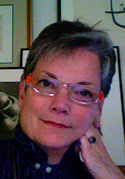EDITOR'S NOTE:

For July we have four dispatches: Roshan Norouzi tells the story of the Iranian election campaigns; Derek Henry Flood was in Los Angeles when Michael Jackson's death was announced; Tim Matsui provides a window into his documentary work on the global nature of human trafficking, and on the island of Malta Marios Stavrou reports on the influx of Africans arriving in dangerous, overcrowded boats.
At the beginning of the election campaign Norouzi, like many young people, knew nothing about Mir Hossein Mousavi, who had been on the political sidelines for 20 years. The photographer says several times for emphasis that the campaign was different from those in the past. Among other things, the choice of a campaign color was a new technique – not to mention it was a vibrant green that carried religious significance [rather like saying, "This is a reform party and a religious one."] He states the "violence shut down the protests." He ends by noting that protesters got around a media blackout by publishing their own images on the Internet or by sending them by phone.
Derek Henry Flood is not a celebrity photographer but he just happened to be in Los Angeles when he heard that Michael Jackson had been rushed to the hospital. He decided to pay attention and saw both grief and celebration of the life of the King of Pop.
In Phnom Penh, Cambodia, again, Tim Matsui shot video and stills on the subject of sexual violence. His commitment is deep – he has founded the nonprofit FEAR Project. As per his biography, the organization uses documentary multimedia to create a dialogue on the devastating effect of any kind of slavery on society. One of his images shows women playing cards – one of whom is about to pimp her child. He paraphrases The Asia Foundation: "The selling of children is broadly seen as an unpleasant but a forgivable economic necessity."
Marios Stavrou looked into the lives of African immigrants in detention who have fled poverty and conflict in their own countries and have come to Malta, a Mediterranean island south of Turkey and close to Italy.
Malta is the second most densely populated nation in the world after Bangladesh. Because of this and the profound economic burden, the new migrants are generally unwelcome. The BBC.com, May 11, 2009, presented the transcript of a Radio 4 program stating: "What began as a trickle – six years ago, 500 were rescued by the Maltese – now feels to islanders like a flood. In the 12 months to March, some 3,400 arrived." Apparently the Africans from many different countries often get themselves to Libya, pay exorbitant prices to fixers and are smuggled to the Mediterranean. Once there, they are shoved onto crowded old crafts and begin their sea voyage to Yemen, Italy and Malta. Italy is the prized destination because it is part of Europe where they hope to find jobs. Hundreds have drowned.
Marianne Fulton
Dispatches Editor
fultonaustin@yahoo.com
|